- AI Writing Services
- AI Detectors
- Coding Homework Help
- Citation Generators
- Editing Websites
- Essay Writing Websites
- Language Learning Websites
- Math Solvers
- Paraphrasers
- Plagiarism Checkers
- Reference Finders
- Spell Checkers
- Summarizers
- Tutoring Websites
- Essay Checkers
- Essay Topic Finders
- Top Lists and Recommendations
- Writing an Essay
- Writing a Review
- Writing a Research Paper
- AI Writing Guides
- AI Detection Guides
- Citation Guides
- Coding Guides
- Grammar Guides
- Humanities Guides
- Language Learning Guides
- Paraphrasing Guides
- Plagiarism Guides
- Summary Writing Guides
- STEM Guides
- Academic Text Samples
- Application Essay Samples
- Business Writing Samples
- Creative Writing Samples
- Letter Writing Samples
- Writing Tips and Rules
- Student Life
- Higher Education News
- EdTech News
- Job Market for Students
- Academic Writing Tips
- Language Learning Tips
- Coding Tips and Trends
- AI Detector
- AI Essay Checker
- AI Essay Writer
- Citation Generator
- Grammar Checker
- Literature Review Generator
- Paraphraser
- Plagiarism Checker
- Reference Finder

Most Popular
Really bad writing.

Welcome to the intriguing world of writing – a tantalizing tapestry of creativity, emotion, and intellectual exploration. Here, words aren’t merely vessels of communication; they’re mirrors, reflecting the vibrant mindscapes of their creators. While we often celebrate the artistry of good writing, we rarely venture into the intriguing shadows of its less glamorous counterpart – bad writing. It’s akin to exploring a secret attic, dusty and daunting, but filled with untold lessons. Let’s bravely pull back the curtain on bad writing, discover its quirks, understand its pitfalls, and learn how it can guide us on our journey to becoming stronger, more skilful writers. Buckle up, for we’re about to embark on a writing adventure like no other!
Examples of Bad Writing
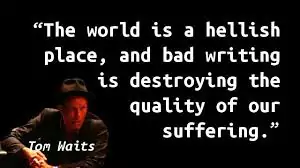
Below are sample excerpts from what I think is a really bad writing. These excerpts are collected from different stories, either written by me (sometimes, when you edit, you find monsters), or by other authors. I won’t disclose their names though. Read the following samples, guess what’s wrong with them, and never write like this.
1. Sunday was a marvelous, uplifting day, perfect for our usual slow and cozy strolls around the picturesque autumn park. It was late glorious October outside, and the whole town was covered with yellow, red, brown, and crimson crispy leaves. The blue sky with fluffy, curly white clouds in it looked light-minded as if all the gruesome and sad miseries of unhappy people living under it were none of its business but its own. I put on my beige warm sweater of large viscous, pushed an old ragged door of my tiny apartment, and went outside and went outside, oh, went outside.
I hope you noticed the enormous quantity of adjectives and epithets and the grammatical errors. Don’t repeat these mistakes.
2. Whenever I was feeling depressed, sad, or just out of place, I would pack my things into a small backpack, write a couple of short letters to my friends—just to prevent them from worrying about my whereabouts—and set off travelling around the state; it really did not matter for me where to go—in youth, I was fascinated with the aesthetics and nomadic romance of the beat generation, so usually I would buy a ticket on a bus (Greyhound Express, just like Jack Kerouac would like it, baby) driving to nowhere, sit, drink from my canteen, and watch the endless miles of the road pass by me outside of the window.
I almost fell asleep while I tried to read to the end of this super-long sentence. And this is not even the longest sentence I’ve encountered.
3. She looked as if she was struck by lightning: her eyes going to fall out of orbits, her mouth wide open, as if she was trying to swallow a train, her skin deadly pale. To me, seeing her in such a condition was heartbreaking, like eggs being cracked upon a stone.
Metaphors and comparisons can be okay if you use them once every few pages. But back to back, they can be annoying—especially poorly-used metaphors.
4. Emotional detachment between us during manifested harmony in relationships was causing a cognitive dissonance within me; my mind was wandering in Kafkian labyrinths of doubt, guilt, and sorrow, while my mouth almost subconsciously produced sparkling words that people usually associate with love.
Don’t try to sound smart. It destroys the magic of your text. If your reader has no idea about Kafkian labyrinths or cognitive dissonance, your effort will be in vain.
5. Electric compulsion of misery flowed through the night megalopolis, filling the veins of pragmatic reality with juices. Magnetic Adam of the new epoch, the innocent function of digital satori, who were you in this entropy?
WHAT?! This is too avant-garde, and in this case, it’s not a compliment.
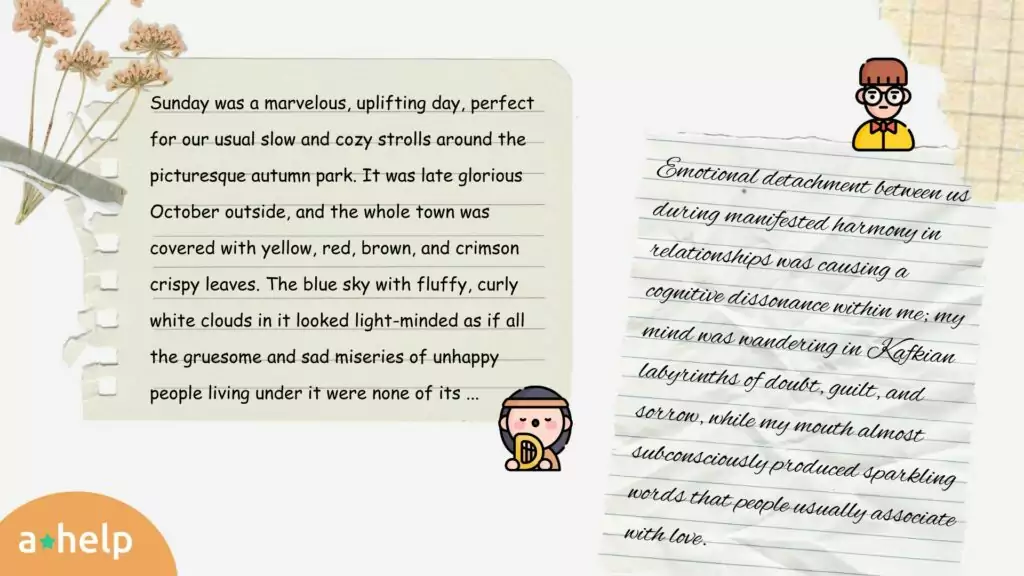
You seriously don’t want to stumble upon such authors. So, if you were planning on working with some writers, you better check their works beforehand. Consider checking out the best custom writing service reviews – maybe you can find true masters of the words there.
Top Writing Mistakes and How to Avoid Them: A Comprehensive Guide
The art of writing holds immense transformative power. But, as with any craft, it can also be filled with potential pitfalls. This article unveils some common writing mistakes and provides insightful strategies to improve your craft. Let’s dive in.
One common writing faux pas is ‘info-dumping’. Authors can fall into the trap of overloading the reader with a sudden onslaught of information to create context or background. Rather than risking the reader’s interest with a wall of text, try subtly sprinkling details throughout the story . As the old saying goes, a little can go a long way.
Next on our list is the pitfall of excessive descriptive language. While well-chosen adjectives can help transport readers to another world, their overuse can slow down the narrative and disengage readers. Remember, a well-crafted narrative strikes a balance between descriptive language and concise storytelling. To achieve this balance, consider using a free essay writer to refine your prose and eliminate unnecessary verbosity.
Clichés are yet another common writing mistake. Overuse of these familiar phrases can make a story feel stale and predictable, suggesting a lack of original thought. Instead of resorting to clichés, try using fresh, original metaphors and descriptions to make your work truly stand out.
Our exploration into common writing errors would be incomplete without addressing ‘telling’ instead of ‘showing’. Instead of explicitly telling your readers that a character is scared, for example, show them descriptions of the character’s trembling hands, quickened breath, or the chill crawling up their spine. The art of storytelling lies in not just what information you convey, but how you convey it.
Another critical issue arises when dialogue feels unnatural or stilted. If characters speak like robots or philosophers in everyday conversation, it can create a disconnect for the reader. To prevent this, try incorporating authentic, real-world dialogue . Remember, your characters should feel like real people.

Lastly, we address the common writing mistake of overusing passive voice. Passive sentences tend to be wordy and less direct, which can make them feel awkward or weak. To enhance the energy of your writing, be bold, be direct, and let your active voice shine!
Let’s shift gears and explore some insights derived from personal experiences shared by writers.
Many writers initially struggle with ‘purple prose,’ a term for writing that’s overly ornate or flowery. Over time, they realize that simplicity often makes for more compelling reading. In the world of writing, less is indeed often more.
Overuse of adverbs is another pitfall writers often face in their early attempts at crafting a story. Learning to trust nouns and verbs to carry the scene can help writers overcome this habit and produce more impactful prose.
Creating two-dimensional characters is another common issue. Characters should feel like living, breathing beings with depth and motivation, rather than mere cardboard cutouts.
Inconsistent point-of-view is another challenge that writers often need to overcome. Maintaining a consistent narrative perspective can help to create a stronger narrative focus and engage readers more effectively.
Finally, writers new to poetry often struggle with forced rhymes and rhythms. With practice, they learn to let the words flow naturally, focusing on the message rather than the rhymes.
Exploring Examples of Bad Writing and How to Improve Them
Bad writing is something every writer wants to avoid. However, understanding what constitutes poor writing can be a useful tool in improving writing quality. To shed light on this, we’ll explore some examples of bad writing, commonly seen in popular books, both in literary fiction and commercial fiction.
Inappropriate Dialogue and Dialogue Tags
One common example of bad writing can be found in the execution of dialogue. Good writing involves creating conversations that sound natural and real. However, in some bestselling books, character conversations can feel forced or unnatural, leading to poor writing. For instance, using dialogue tags inappropriately can disrupt the flow of speaking parts. Tags like “he exclaimed” or “she bellowed” used excessively can distract the reader and detract from the narrative. Skilled writing involves using dialogue tags sparingly and effectively.
Another example of bad writing in dialogue is the use of unnatural language. Characters should speak like real people, their language reflecting their background, age, and personality. When character names start to spout jargon or use overly complex language without any contextual reasoning, it can feel jarring to the reader.
Ineffective Description
Description is a critical component of both literary novels and genre fiction. However, bad writing often includes detailed descriptions that don’t serve the story. For example, imagine a scene in a coffee shop where the author spends three paragraphs describing the intricate design of the espresso machine. Unless the coffeehouse or the machine plays a significant role in the narrative, such a vivid depiction is unnecessary and can slow down the pace of the story.
Good writing, on the other hand, incorporates descriptive writing that enhances the narrative and deepens the reader’s understanding of the characters or the setting. A quality description in a literary work or a popular novel should be concise, relevant, and evocative, creating a vivid picture in the reader’s mind without overburdening them with unnecessary details.
Confusing Point of View
A clear and consistent point of view is a hallmark of effective writing. However, in some highly read books, the author’s perspective or the narrative perspective can become muddled, leading to bad writing. For instance, if a story is told from a single character’s point of view, but suddenly includes information that this character couldn’t possibly know, it breaks the consistency of the storytelling angle and can confuse the reader.
The Power of Redrafting
Improving writing, particularly in commercial fiction and literary fiction, often involves significant rewriting, editing, or revising. Redrafting is a critical part of the writing process that allows authors to identify and correct instances of bad writing.
For instance, dialogue can be improved by removing unnecessary dialogue markers, making conversations more natural, and ensuring that character names and their speech reflect their personalities and backgrounds. Descriptions can be refined to ensure they serve the story and aren’t overly detailed. The point of view can be clarified and made consistent throughout the story.
Inconsistent Characterization
Characterization is a vital aspect of both literary works and mainstream novels. However, bad writing often manifests as inconsistent characterization, where the traits, actions, or reactions of the protagonist or other characters don’t align with what has been established earlier in the story. For instance, a character portrayed as shy and introverted suddenly becoming outgoing and gregarious without any plausible explanation or character development can confuse readers and weaken the narrative.
In good writing, characters evolve over time, but such changes are gradual and justified by the plot or their experiences. The names of the characters and their actions should align with their personalities, backgrounds, and the story’s overall context.
Misuse of Common Settings
Another area where bad writing can be evident is in the depiction of common settings, such as a coffee shop or a café. For example, if every significant conversation or revelation in the story occurs in an espresso bar without any compelling reason, it can strain the story’s credibility and become repetitive. Effective writing employs a variety of settings and ensures that the location matches the scene’s tone and significance.
Ineffective Use of Language
Poor writing often includes redundant phrases, incorrect word usage, and convoluted sentence structures, which can distract the reader and interrupt the narrative flow. An essential part of improving writing is honing language skills, choosing the right words for clarity and impact, and maintaining grammatical accuracy.
Overcoming Bad Writing through Redrafting
One of the most reliable ways to address bad writing is through redrafting, rewriting, or revising the text. This process involves examining every aspect of the story, from dialogue and description to character consistency and point of view, and making necessary changes to enhance the writing quality.
Redrafting can also involve replacing overused words with synonyms, improving sentence structure, and eliminating unnecessary details or repetitions. For instance, a dialogue tag like “he said” can often be removed entirely if it’s clear who’s speaking, leading to cleaner, more effective writing.
The Transformational Journey from Draft to Masterpiece
Few writers strike gold with their first drafts; the true magic happens during the revision phase. Revision, or redrafting, is a powerful tool that can elevate a good piece to greatness. It’s the process where we refine our thoughts, improve our arguments, and perfect our language to better connect with readers. An essential aspect of writing, revision can transform a raw manuscript into a polished masterpiece.

A Step-by-Step Guide to Organizing Effective Redrafting:
- Embrace the Pause: Once you’ve completed your initial draft, give yourself permission to take a break. This intentional distancing allows your mind to reset, and when you return, you’ll be equipped with fresh eyes, ready to identify any gaps in information, inconsistencies in the plot or argument, or any parts that may be unclear to your reader.
- Read Aloud:: When you read your work aloud, you engage another sense that helps you perceive your writing from a different perspective. You become the audience, able to pick up on awkward phrasing, clunky sentences, or tonal inconsistencies that might be overlooked when reading silently.
- Involve Others: Enlist the help of a trusted friend, mentor, or editor to review your work. They bring an outsider’s perspective, essential for pinpointing areas that might be confusing or lacking in explanation. This feedback provides a road map for your revisions.
- Revise in Stages: : Attempting to revise everything simultaneously can be daunting. Therefore, break your revision down into manageable stages. Start with the macro level by focusing on the overall content and structure. Once you’re satisfied, dive into the micro level, examining sentence structure, language use, and word choice. Lastly, focus on fine-tuning the grammar and punctuation.
- Sacrifice for the Greater Good: Writers often coin the term “kill your darlings” when talking about beloved but unnecessary portions of their work. It’s vital to stay objective and be willing to cut your favourite sentence or paragraph if it doesn’t contribute to the overall piece.
- Final Sweep – Proofreading: After all the conceptual and structural changes, meticulously scour your work for any overlooked typos, grammatical errors, or punctuation mishaps. These seemingly small mistakes can greatly affect the credibility and impact of your work.
- Iterate and Refine: Remember, good writing is the result of continuous refining. Don’t hesitate to undergo multiple rounds of revisions. With each round, your writing will become more refined, clear, and powerful. This process doesn’t necessarily get easier, but the rewards of a well-crafted piece are worth every revision.
The path to becoming a skilled writer is paved with lessons. Embrace the process of continual learning and improvement. Every story you write is a part of your unique narrative as a writer.
Stay updated for more!
Follow us on Reddit for more insights and updates.
Comments (0)
Welcome to A*Help comments!
We’re all about debate and discussion at A*Help.
We value the diverse opinions of users, so you may find points of view that you don’t agree with. And that’s cool. However, there are certain things we’re not OK with: attempts to manipulate our data in any way, for example, or the posting of discriminative, offensive, hateful, or disparaging material.
Cancel reply
Your email address will not be published. Required fields are marked *
Save my name, email, and website in this browser for the next time I comment.
More from Educational Trends, News and Tips

Jul 28 2023
Don’t Miss! Weekly Must-Read Articles: New School Gender Policies, The End of OpenAI Detection Tool & African-Led Copywriting Platform Debut

Jul 21 2023
Don’t Miss! Weekly Must-Read Articles: Growing pressure on colleges, Preply raises $70 million for AI, Tech giants search for next-gen talents & more

Jul 14 2023
Don’t Miss! Weekly Must-Read Articles: AI Guidelines, Difficulties with Self-Learning, Educational & Job Opportunities
Remember Me
Is English your native language ? Yes No
What is your profession ? Student Teacher Writer Other
Forgotten Password?
Username or Email
Poverty Essay for Students and Children
500+ words essay on poverty essay.
“Poverty is the worst form of violence”. – Mahatma Gandhi.

How Poverty is Measured?
For measuring poverty United nations have devised two measures of poverty – Absolute & relative poverty. Absolute poverty is used to measure poverty in developing countries like India. Relative poverty is used to measure poverty in developed countries like the USA. In absolute poverty, a line based on the minimum level of income has been created & is called a poverty line. If per day income of a family is below this level, then it is poor or below the poverty line. If per day income of a family is above this level, then it is non-poor or above the poverty line. In India, the new poverty line is Rs 32 in rural areas and Rs 47 in urban areas.
Get the huge list of more than 500 Essay Topics and Ideas
Causes of Poverty
According to the Noble prize winner South African leader, Nelson Mandela – “Poverty is not natural, it is manmade”. The above statement is true as the causes of poverty are generally man-made. There are various causes of poverty but the most important is population. Rising population is putting the burden on the resources & budget of countries. Governments are finding difficult to provide food, shelter & employment to the rising population.
The other causes are- lack of education, war, natural disaster, lack of employment, lack of infrastructure, political instability, etc. For instance- lack of employment opportunities makes a person jobless & he is not able to earn enough to fulfill the basic necessities of his family & becomes poor. Lack of education compels a person for less paying jobs & it makes him poorer. Lack of infrastructure means there are no industries, banks, etc. in a country resulting in lack of employment opportunities. Natural disasters like flood, earthquake also contribute to poverty.
In some countries, especially African countries like Somalia, a long period of civil war has made poverty widespread. This is because all the resources & money is being spent in war instead of public welfare. Countries like India, Pakistan, Bangladesh, etc. are prone to natural disasters like cyclone, etc. These disasters occur every year causing poverty to rise.
Ill Effects of Poverty
Poverty affects the life of a poor family. A poor person is not able to take proper food & nutrition &his capacity to work reduces. Reduced capacity to work further reduces his income, making him poorer. Children from poor family never get proper schooling & proper nutrition. They have to work to support their family & this destroys their childhood. Some of them may also involve in crimes like theft, murder, robbery, etc. A poor person remains uneducated & is forced to live under unhygienic conditions in slums. There are no proper sanitation & drinking water facility in slums & he falls ill often & his health deteriorates. A poor person generally dies an early death. So, all social evils are related to poverty.
Government Schemes to Remove Poverty
The government of India also took several measures to eradicate poverty from India. Some of them are – creating employment opportunities , controlling population, etc. In India, about 60% of the population is still dependent on agriculture for its livelihood. Government has taken certain measures to promote agriculture in India. The government constructed certain dams & canals in our country to provide easy availability of water for irrigation. Government has also taken steps for the cheap availability of seeds & farming equipment to promote agriculture. Government is also promoting farming of cash crops like cotton, instead of food crops. In cities, the government is promoting industrialization to create more jobs. Government has also opened ‘Ration shops’. Other measures include providing free & compulsory education for children up to 14 years of age, scholarship to deserving students from a poor background, providing subsidized houses to poor people, etc.
Poverty is a social evil, we can also contribute to control it. For example- we can simply donate old clothes to poor people, we can also sponsor the education of a poor child or we can utilize our free time by teaching poor students. Remember before wasting food, somebody is still sleeping hungry.
Customize your course in 30 seconds
Which class are you in.

- Travelling Essay
- Picnic Essay
- Our Country Essay
- My Parents Essay
- Essay on Favourite Personality
- Essay on Memorable Day of My Life
- Essay on Knowledge is Power
- Essay on Gurpurab
- Essay on My Favourite Season
- Essay on Types of Sports
Leave a Reply Cancel reply
Your email address will not be published. Required fields are marked *
Download the App

What Bad Writing Looks Like … and How to Fix It [With Detailed Examples]
6 Jun 2024 | Fiction
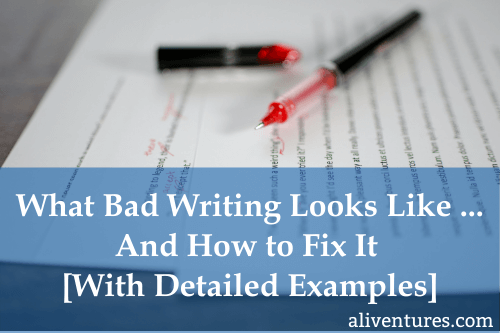
This post was first published in March 2021 and most recently updated in June 2024.
A lot of writers worry that they may not be good enough to be successful .
The truth is that however “good” or “bad” your writing is, you can improve with practice and with careful self-editing .
But how do you know if a particular piece of writing is any good? Once you get beyond the really obvious things, like spelling mistakes and grammatical errors, what exactly does “bad” writing look like? More importantly, how do you fix it?
That’s what we’re going to tackle here.
Is There Even Such a Thing As “Good” Writing?
Over many years of reading and writing, I’ve heard two different schools of thought about “good” writing.
“Lots of Popular Books Are Really Badly Written”
Some people, particularly journalists and literary critics, can be very judgemental about popular books. The Twilight series, Dan Brown’s books, and Fifty Shades of Grey are ones that have come in for particular criticism.
These books might not be “good” in a literary sense – they’re unlikely to go down in history as great works of art – but they certainly do well commercially. Plenty of people enjoy them as entertainment or escapism.
There is nothing wrong with this.
Personally, I enjoy a lot of books that are considered literary fiction or classics – I studied English Literature as an undergraduate. But I also enjoy plenty of genre and commercial fiction, and I’ve read my share of fanfiction too. I’ve enjoyed all of it, in different ways.
Please don’t think that your writing is bad because it’s not literary, even if the people around you (in your family, your friendship group, or at school or university) only prize literary fiction.
“There’s No Such Thing as Good or Bad Writing”
At the opposite end of the spectrum, some people think there’s really no such thing as good or bad writing, only writing that’s inappropriate for its context.
For instance, a very clear, straightforward style might be right for a software tutorial but not for a literary novel. Rhyming verse might be perfect for a children’s book but not a romance novella.
However, some writing simply is bad, because it wouldn’t work well in any context.
Of course, this doesn’t mean it’s irredeemably bad. A poorly written first draft could, after some editing, become a really strong finished piece. My own rough drafts are stuffed full of clunky sentences, inconsistent characterisation, unintentional repetition, and plenty of other kinds of poor writing. And that’s okay! What matters when you’re at this stage is simply finishing that first draft , not perfecting every word.
This type of “bad writing” is what we’re going to be looking at today: first or early draft writing that still needs quite a bit of work before a reader can enjoy it.
Here’s What Bad Writing Looks Like
Here’s a passage of bad writing that I’ve created, based on a lot of common drafting mistakes. I’ll split it into three parts, and go through the mistakes (and how to fix them) after each.
Important: If you find yourself recognising some of these mistakes from your own work, please don’t think that you’re a bad writer! There’ll be plenty of things that you’re doing really well too.
Bad Writing Example #1
“Hi James,” announced Jason, spotting him in the street. “It’s a while since I’ve seen you.” “Hi Jason,” exclaimed James with surprise. “You’re right. I haven’t seen you since Dave’s party. How are you?” “I’m fine, thank you,” smiled Jason. “How about you?” “I’m great, thanks,” James laughed. “In fact, I was just about to go and get a coffee. Do you want to come with me?” “That sounds good, thanks James. I’d love to catch up.” Jason looked around the street where lots of people were walking back and forth. He wasn’t sure where the nearest coffee shop was but perhaps his friend knew. His old confidence had lived here for years. Jason was just visiting the town because he had been picking up his new glasses from the opticians. “Where should we go for coffee?” Jason queried, waving his hand around to indicate that he was uncertain of the direction in which to go. “I know a great place,” James explained. “Just follow me.”
Let’s look at some of the positives of this short piece first. There’s always something good in any piece of writing.
For instance, the dialogue is correctly punctuated. Getting dialogue punctuation right can trip up newer writers, so if you need to brush up your skills in this area, check out this guide .
Theres’s also a fairly good mix of dialogue and action. There are rather a lot of dialogue tags though there is an action beat used in one instance (“Jason looked around the street”) as a good alternative to a dialogue tag.
Unfortunately, there are quite a few things that aren’t working well here. Let’s go through them one by one.
Overly Similar Names
Are you getting confused between Jason, the newcomer to town, and James, the friend who lives in the town? It’s a good idea to avoid having two characters with names starting with the same letter, especially if those names are (a) roughly the same length and/or (b) the same gender. A Jason and a Jennifer wouldn’t be nearly so confusing. I’m going to rename James as Dave in the next extract, because I’m getting so muddled myself!
Poor Dialogue Tags
Words like announced, exclaimed, smiled, laughed, queried, and explained draw attention to themselves – rather than to the actual dialogue. They sound like the author is trying too hard. The words “said” and “asked” would work fine instead. In particular, I’d avoid tags that are particularly unusual (like “queried”) and ones that are an action rather than a way of saying something (like “smiled” and “laughed”).
Using the Wrong Word
The word “confidence” (in “his old confidence”) should be confidant (someone trusted and confided in) . This sort of mistake is really easy to make, especially as sometimes auto-correct may change a correct but unusual word into an incorrect but more familiar one. It’s an easy thing to fix, but definitely something to watch out for when editing.
Potentially Confusing Phrasing
We’re told that “lots of people were walking back and forth” in the street. This seems to imply that the same people are walking one way then back the other, which is unlikely to be the case.
Irrelevant Details
The information about people walking in the street is hardly worth mentioning: we’d expect it (unless the scene is set very early or late in the day, when a crowded street would be more unusual and worth mentioning).
Over-Explaining by the Author
Jason asks where the coffee shop is, waves his hand around, then the author explains why he waves his hand around (“to indicate that he was uncertain of the direction in which to go”). The reader likely doesn’t need the gesture explained. Even if they didn’t understand it, they’d get it from the dialogue.
Bad Writing Example #2
(I’ve now renamed James, who lives in the town, as Dave. That way, the character names aren’t so easy to muddle up.)
Dave and Jason quickly walked down the street. Dave was wearing a black coat and a blue hat that he thought looked warm. It was a windy day and Jason was feeling a little bit cold. The tall man led him down the road and past some shops and then they crossed over the street at some traffic lights where the cars stopped obediently for them to cross at their leisure though Dave quickly strode across with long steps. Jason remembered how his former comrade had always won the 100 meter sprint at school, over 30 years ago. He wondered whether he too had happy memories of their days at school. For Jason, they had truly been some of the best days of his life. He could have gone to the reunion a few months ago but he had decided not to in the end because he was going on holiday with his sister and her kids, his niece and nephew, who were aged three and five years.
Again, there are some positive things here. There’s a growing sense of the relationship between the characters, with a sense that Jason admires Dave (with his recollection about the school days). We also get a bit more of Jason’s backstory, with a mention of holidaying with his sister and her kids – though this does seem like it’s been forced in a bit.
Here’s what’s not working:
Confusing Use of Pronouns
If you have two (or more) characters of the same gender in the same scene, you need to pay careful attention to pronouns. Here, the sentence “Dave was wearing a black coat and a blue hat that he thought looked warm” is confusing because the “he” seems like it would refer to Dave – but it’s actually referring to Jason, who’s looking at Dave.
Using Phrases Instead of Character Names
Like coming up with lots of alternatives for the perfectly good word “said”, using phrases instead of character names is a common mistake. Again, it’s a problem because it draws attention to the wrong thing: the strange phrase, rather than the action or dialogue taking place. Here, Dave is referred to as the tall man and [Jason’s] former comrade . It would be better to simply use his name.
Unintentional Repetition
Within a single sentence here, we have the words “crossed”, “cross” and “across”. While they’re not all the exact same word, they’re so similar that they start to jar a bit on the reader. Repetition is a powerful tool in writing, but unintended repetition will catch the reader’s attention and break them out of the world of your story. They’ll start wondering why you’re so very fond of a particular word (or its close variations).
Overly Long Paragraph
The second paragraph in this section is quite long. Its length might be normal and unexceptional in some types of fiction (e.g. literary or historical fiction). But compared with the other paragraphs in this passage, it seems a bit on the long side.
Too Much Irrelevant Information
As well as being rather long, that paragraph seems to contain a lot of information that isn’t particularly relevant. Some of this is stating the obvious (the cars “stopped obediently” at the traffic lights – which is exactly what you’d expect them to do) and some seems like a tangent from the scene (Jason’s memories about school and the fact that he didn’t go to the reunion). It’s possible that this information is important to the plot, but if so, it could be woven into the story more naturally.
Redundant Phrasing
We’re told that “Jason quickly strode across with long steps.” Just “Jason strode across” would convey the same meaning, without bogging down the action with unnecessary words.
Bad Writing Example #3
At long last Dave shouted “Here we are!” and they went into the coffee shop. There was a display of cakes and biscuits behind a glass panel at the counter. Jason thought about getting one of these rich tempting delights. But he was trying to cut back on sugar so he decided to give it a miss. “Shall I buy the coffees, Jason?” enquired his friend. “Thank you, Dave. That’s very kind of you. But I insist that I buy them,” Jason insisted. “Definitely not,” exclaimed Dave, wanting to pay as Jason was visiting his town. “It’s my treat.” After a short period of deliberation, they decided to each have a latte. They stood and waited patiently for the barista making the coffees and to bring them over. Dave paid with a ten pound note, as he wanted some change, and put his change in his right trouser pocket. Once the coffees were ready, Jason and his former schoolmate went to find an unoccupied table at the back of the cafe.
Again, the dialogue is well punctuated and laid out, albeit with some rather attention-seeking dialogue tags.
But once again, there’s quite a bit of editing needed.
Here are some of the most obvious problems:
Blow by Blow Description of Mundane Event
Dave and Jason go into what we can only assume is a fairly conventional coffee shop, order lattes, and sit down. This is, quite frankly, boring writing. The scene doesn’t need to be described in minute detail (with a fairly pointless back-and-forth conversation, the details about Dave paying and where he puts the change, and so on).
Detailed Description of What a Character DOESN’T Do
Jason looks at the cakes and biscuits but decides not to get one. Unless him cutting back on sugar is particularly important to the plot or his character arc, we could skip this entirely. Otherwise, something like “Jason resisted the temptation of the cake display” would tell us all we need to know. One of the great things about the novel form is the ability to dig into a character’s thoughts … but only when those thoughts are actually interesting.
Chit-Chat Dialogue
This has been a problem throughout the whole passage. Dave and Jason chat but without saying anything of meaning. This happens a lot in life – but it shouldn’t happen in your story! Unless the characters are about to have a row over who pays for the coffees, we don’t need the back-and-forth that happens here.
Stilted Dialogue
As well as being a bit chit-chatty, the dialogue is oddly stilted. The characters use one another’s names (which people don’t tend to do when there’s only two of them, as it’s obvious who they’re addressing) and the language like “that’s very kind of you” seems strangely formal.
Wavering Point of View
We’re told that Dave wanted to pay because Jason is visiting his town, and that he paid with a £10 note because he “wanted some change”. The rest of the passage has been from Jason’s point of view. Dipping into what Dave wants comes across as head-hopping.
In the whole passage, almost nothing has happened. Two old friends meet unexpectedly and decide to go for a coffee. There’s no conflict or tension. It needs to be a lot shorter, better paced , and with an eye to intriguing the reader with things like unanswered questions .
Turning Bad Writing Into Good Writing
As I said earlier, no writing is irredeemably bad … and everything you write can be (and probably should be!) redrafted.
As part of the rewrite, I’m going to assume that there are some key details we need to keep because they’ll become relevant to the plot later:
- Dave is wearing a hat
- Dave regularly won the 100 meter sprint at school
- Jason is in an area where he doesn’t live
- Jason didn’t attend the school reunion
I’m also going to keep the key plot events: the characters meet and they go to a coffee shop to talk further.
“Hi Jason!” It was Dave – Jason hadn’t seen him in years, and had forgotten he even lived around here. “Dave! It’s been a while.” Dave smiled. “Got time for a coffee? I know a place just up the road.” They strode down the street, Jason regretting that he hadn’t dressed more warmly, and feeling a little envious of Dave’s woolly hat. He had to half-run to keep up with Dave – but then, Dave had always been fast, winning the 100 meter sprint every year at school. “Did you go to the reunion?” Jason asked. “Nah, mate, did you?” “Nope,” Jason said. “I was on holiday with my sister and her kids.” They walked into the shop, Linda’s Coffee . Dave said, “What do you want? My treat.” “Oh, thanks. A latte, please.” It was a small cafe, without the glossy sheen of the chain coffee shops. It was deserted, too. The only other person there – presumably, Linda – handed them two generous lattes. Dave and Jason settled in battered leather armchairs. “So what brings you to this part of town?” Dave asked.
I wouldn’t claim this is the best piece of fiction I’ve ever written … but hopefully you can see it’s a huge improvement on the original. It gets through the required information fairly quickly, and perhaps starts to raise a few questions, like why Jason is in this part of town, why Dave didn’t go to the reunion, and what the relevance of Dave’s speed might be.
How to Improve Your Own Writing
If you’ve written a whole draft, whether that’s of a short story or a novel, then that’s a great achievement!
Please don’t worry about your writing being “good enough” at that stage. You’ve got plenty of time to rewrite, to keep what’s working, and to cut out writing that was essentially you warming up to get into a scene.
In your own work, look out for any issues like the ones we’ve gone through here. You might also want to check out these lists of common mistakes (plus examples) for some more help:
- Ten Book-Level Mistakes to Watch Out for When Redrafting Your Fiction
- Ten Sentence-Level Mistakes to Watch Out for When Editing Your Fiction
Another great way to improve is to ask a writer friend (or a beta reader ) to give you feedback on your own writing. I know this can be really daunting, but good feedback will help you pin-point what you’re already doing well (and can build on) as well as highlighting areas where you may need to spend time editing.
As a general rule, I’d aim to have a solid draft before seeking feedback. That way, you can make the most of your friend or beta reader’s time, as they won’t just be pointing out problems that you already knew about.
Join the Aliventures Newsletter for More Writing Help

For weekly blog posts and exclusive short articles about writing, make sure you join the Aliventures newsletter.
Thanks for joining the newsletter list! Check your inbox for a message from me ([email protected]). You'll need to click a button in that email to confirm your email address.
As soon as you sign up, you’ll get access to my library of mini-ebooks. These include:
- The Courageous Writer: How to Grow In Confidence and Nuture Your Creativity
- Time to Write: How to Fit More Writing Into Your Busy Life, Right Now
- The Two-Year Novel: Plan, Write, Edit and Publish Your Novel in 24 Months
The Aliventures newsletter includes a short article on writing, and comes to your inbox every week.
When you join, you also get four free mini-ebooks.
(You can learn more about the newsletter here.)

I’m Ali Luke, and I live in Leeds in the UK with my husband and two children.
Aliventures is where I help you master the art, craft and business of writing.
If you're new, welcome! These posts are good ones to start with:
Can You Call Yourself a “Writer” if You’re Not Currently Writing?
The Three Stages of Editing (and Nine Handy Do-it-Yourself Tips)
What to Do When Your Writing Goals Seem a Long Way Off

My contemporary fantasy trilogy is available from Amazon. The books follow on from one another, so read Lycopolis first.
You can buy them all from Amazon, or read them FREE in Kindle Unlimited.
I guess this article is meant for me…
im absolutely RATTLED over reading this and realizing why i dont like so much of my writing is because i do the whole ‘blow-by-blow of a mundane event’ section. this…this is gonna change me
It’s a really easy trap to fall into as a writer! I’m really glad this was helpful. Keep writing (and don’t forget to pay attention to the bits you DO like in your own writing … see what they have in common and how you can do more of that stuff). 🙂
Oh, wow…remember my first ever comment on your blog? “I want to be good, but I know I’m not. Is there any hope for a writer like me?”
It’s quite gratifying to see that I immediately recognized most of the mistakes in these passages (and I predicted you’d mention that there was no tension, nothing was really “happening”). And a lot of these mistakes are ones I don’t think I tend to make. (Though it’s quite possible I’m making OTHER ones! XD) Emma’s last blog post .. What is the Cosmological Principle?
Hey, I’m not surprised you spotted loads of the mistakes here, because you’re a GREAT writer! And we all make mistakes. I make plenty! That’s what all the rounds of edits (and beta-readers / editors…) are for. 😀
And yet … her ‘correction’, while an improvement, ain’t that great either. Too many people out there pretending to have the skillset to teach others what to do — when they quite simply don’t! Especially when it comes to the arts.
As I said in the post, I’m hardly claiming it’s the best fiction I’ve ever written … I’m glad you agree it’s an improvement on the “bad” version though. 🙂
Feel free to share in the comments how you’d rewrite it!

~ Get Your FREE Ebook ~
Want to build your confidence and creativity?
Pop your email address in below to join my newsletter list. You'll get The Courageous Writer plus other free ebooks, weekly blog posts (Thursdays) and short newsletters (Mondays) to support you on your writing journey.
Note: I will never spam you or pass on your email address to anyone else. You can leave the newsletter list at any time.
Thanks for joining the newsletter! Check your inbox: you'll have a message with a button to click to confirm your email address.

Choose Your Test
- Search Blogs By Category
- College Admissions
- AP and IB Exams
- GPA and Coursework
Bad College Essays: 10 Mistakes You Must Avoid
College Essays
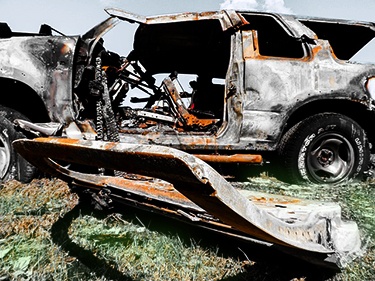
Just as there are noteworthy examples of excellent college essays that admissions offices like to publish, so are there cringe-worthy examples of terrible college essays that end up being described by anonymous admissions officers on Reddit discussion boards.
While I won't guarantee that your essay will end up in the first category, I will say that you follow my advice in this article, your essay most assuredly won't end up in the second. How do you avoid writing a bad admissions essay? Read on to find out what makes an essay bad and to learn which college essay topics to avoid. I'll also explain how to recognize bad college essays—and what to do to if you end up creating one by accident.

What Makes Bad College Essays Bad
What exactly happens to turn a college essay terrible? Just as great personal statements combine an unexpected topic with superb execution, flawed personal statements compound problematic subject matter with poor execution.
Problems With the Topic
The primary way to screw up a college essay is to flub what the essay is about or how you've decided to discuss a particular experience. Badly chosen essay content can easily create an essay that is off-putting in one of a number of ways I'll discuss in the next section.
The essay is the place to let the admissions office of your target college get to know your personality, character, and the talents and skills that aren't on your transcript. So if you start with a terrible topic, not only will you end up with a bad essay, but you risk ruining the good impression that the rest of your application makes.
Some bad topics show admissions officers that you don't have a good sense of judgment or maturity , which is a problem since they are building a class of college students who have to be able to handle independent life on campus.
Other bad topics suggest that you are a boring person , or someone who doesn't process your experience in a colorful or lively way, which is a problem since colleges want to create a dynamic and engaged cohort of students.
Still other bad topics indicate that you're unaware of or disconnected from the outside world and focused only on yourself , which is a problem since part of the point of college is to engage with new people and new ideas, and admissions officers are looking for people who can do that.
Problems With the Execution
Sometimes, even if the experiences you discuss could be the foundation of a great personal statement, the way you've structured and put together your essay sends up warning flags. This is because the admissions essay is also a place to show the admissions team the maturity and clarity of your writing style.
One way to get this part wrong is to exhibit very faulty writing mechanics , like unclear syntax or incorrectly used punctuation. This is a problem since college-ready writing is one of the things that's expected from a high school graduate.
Another way to mess this up is to ignore prompt instructions either for creative or careless reasons. This can show admissions officers that you're either someone who simply blows off directions and instructions or someone who can't understand how to follow them . Neither is a good thing, since they are looking for people who are open to receiving new information from professors and not just deciding they know everything already.


College Essay Topics To Avoid
Want to know why you're often advised to write about something mundane and everyday for your college essay? That's because the more out-there your topic, the more likely it is to stumble into one of these trouble categories.
Too Personal
The problem with the overly personal essay topic is that revealing something very private can show that you don't really understand boundaries . And knowing where appropriate boundaries are will be key for living on your own with a bunch of people not related to you.
Unfortunately, stumbling into the TMI zone of essay topics is more common than you think. One quick test for checking your privacy-breaking level: if it's not something you'd tell a friendly stranger sitting next to you on the plane, maybe don't tell it to the admissions office.
- Describing losing your virginity, or anything about your sex life really. This doesn't mean you can't write about your sexual orientation—just leave out the actual physical act.
- Writing in too much detail about your illness, disability, any other bodily functions. Detailed meaningful discussion of what this physical condition has meant to you and your life is a great thing to write about. But stay away from body horror and graphic descriptions that are simply there for gratuitous shock value.
- Waxing poetic about your love for your significant other. Your relationship is adorable to the people currently involved in it, but those who don't know you aren't invested in this aspect of your life.
- Confessing to odd and unusual desires of the sexual or illegal variety. Your obsession with cultivating cacti is wonderful topic, while your obsession with researching explosives is a terrible one.

Too Revealing of Bad Judgment
Generally speaking, leave past illegal or immoral actions out of your essay . It's simply a bad idea to give admissions officers ammunition to dislike you.
Some exceptions might be if you did something in a very, very different mindset from the one you're in now (in the midst of escaping from danger, under severe coercion, or when you were very young, for example). Or if your essay is about explaining how you've turned over a new leaf and you have the transcript to back you up.
- Writing about committing crime as something fun or exciting. Unless it's on your permanent record, and you'd like a chance to explain how you've learned your lesson and changed, don't put this in your essay.
- Describing drug use or the experience of being drunk or high. Even if you're in a state where some recreational drugs are legal, you're a high school student. Your only exposure to mind-altering substances should be caffeine.
- Making up fictional stories about yourself as though they are true. You're unlikely to be a good enough fantasist to pull this off, and there's no reason to roll the dice on being discovered to be a liar.
- Detailing your personality flaws. Unless you have a great story of coping with one of these, leave deal-breakers like pathological narcissism out of your personal statement.

Too Overconfident
While it's great to have faith in your abilities, no one likes a relentless show-off. No matter how magnificent your accomplishments, if you decide to focus your essay on them, it's better to describe a setback or a moment of doubt rather that simply praising yourself to the skies.
- Bragging and making yourself the flawless hero of your essay. This goes double if you're writing about not particularly exciting achievements like scoring the winning goal or getting the lead in the play.
- Having no awareness of the actual scope of your accomplishments. It's lovely that you take time to help others, but volunteer-tutoring a couple of hours a week doesn't make you a saintly figure.

Too Clichéd or Boring
Remember your reader. In this case, you're trying to make yourself memorable to an admissions officer who has been reading thousands of other essays . If your essay makes the mistake of being boring or trite, it just won't register in that person's mind as anything worth paying attention to.
- Transcribing your resume into sentence form or writing about the main activity on your transcript. The application already includes your resume, or a detailed list of your various activities. Unless the prompt specifically asks you to write about your main activity, the essay needs to be about a facet of your interests and personality that doesn't come through the other parts of the application.
- Writing about sports. Every athlete tries to write this essay. Unless you have a completely off-the-wall story or unusual achievement, leave this overdone topic be.
- Being moved by your community service trip to a third-world country. Were you were impressed at how happy the people seemed despite being poor? Did you learn a valuable lesson about how privileged you are? Unfortunately, so has every other teenager who traveled on one of these trips. Writing about this tends to simultaneously make you sound unempathetic, clueless about the world, way over-privileged, and condescending. Unless you have a highly specific, totally unusual story to tell, don't do it.
- Reacting with sadness to a sad, but very common experience. Unfortunately, many of the hard, formative events in your life are fairly universal. So, if you're going to write about death or divorce, make sure to focus on how you dealt with this event, so the essay is something only you could possibly have written. Only detailed, idiosyncratic description can save this topic.
- Going meta. Don't write about the fact that you're writing the essay as we speak, and now the reader is reading it, and look, the essay is right here in the reader's hand. It's a technique that seems clever, but has already been done many times in many different ways.
- Offering your ideas on how to fix the world. This is especially true if your solution is an easy fix, if only everyone would just listen to you. Trust me, there's just no way you are being realistically appreciative of the level of complexity inherent in the problem you're describing.
- Starting with a famous quotation. There usually is no need to shore up your own words by bringing in someone else's. Of course, if you are writing about a particular phrase that you've adopted as a life motto, feel free to include it. But even then, having it be the first line in your essay feels like you're handing the keys over to that author and asking them to drive.
- Using an everyday object as a metaphor for your life/personality. "Shoes. They are like this, and like that, and people love them for all of these reasons. And guess what? They are just like me."

Too Off-Topic
Unlike the essays you've been writing in school where the idea is to analyze something outside of yourself, the main subject of your college essay should be you, your background, your makeup, and your future . Writing about someone or something else might well make a great essay, but not for this context.
- Paying tribute to someone very important to you. Everyone would love to meet your grandma, but this isn't the time to focus on her amazing coming of age story. If you do want to talk about a person who is important to your life, dwell on the ways you've been impacted by them, and how you will incorporate this impact into your future.
- Documenting how well other people do things, say things, are active, while you remain passive and inactive in the essay. Being in the orbit of someone else's important lab work, or complex stage production, or meaningful political activism is a fantastic learning moment. But if you decide to write about, your essay should be about your learning and how you've been influenced, not about the other person's achievements.
- Concentrating on a work of art that deeply moved you. Watch out for the pitfall of writing an analytical essay about that work, and not at all about your reaction to it or how you've been affected since. Check out our explanation of how to answer Topic D of the ApplyTexas application to get some advice on writing about someone else's work while making sure your essay still points back at you.
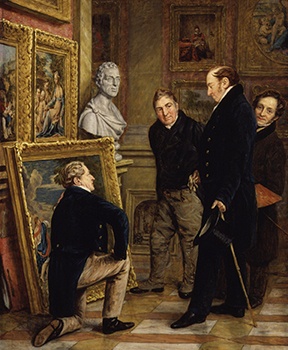
(Image: Pieter Christoffel Wonder [Public domain] , via Wikimedia Commons)

Too Offensive
With this potential mistake, you run the risk of showing a lack of self-awareness or the ability to be open to new ideas . Remember, no reader wants to be lectured at. If that's what your essay does, you are demonstrating an inability to communicate successfully with others.
Also, remember that no college is eager to admit someone who is too close-minded to benefit from being taught by others. A long, one-sided essay about a hot-button issue will suggest that you are exactly that.
- Ranting at length about political, religious, or other contentious topics. You simply don't know where the admissions officer who reads your essay stands on any of these issues. It's better to avoid upsetting or angering that person.
- Writing a one-sided diatribe about guns, abortion, the death penalty, immigration, or anything else in the news. Even if you can marshal facts in your argument, this essay is simply the wrong place to take a narrow, unempathetic side in an ongoing debate.
- Mentioning anything negative about the school you're applying to. Again, your reader is someone who works there and presumably is proud of the place. This is not the time to question the admissions officer's opinions or life choices.

College Essay Execution Problems To Avoid
Bad college essays aren't only caused by bad topics. Sometimes, even if you're writing about an interesting, relevant topic, you can still seem immature or unready for college life because of the way you present that topic—the way you actually write your personal statement. Check to make sure you haven't made any of the common mistakes on this list.
Tone-Deafness
Admissions officers are looking for resourcefulness, the ability to be resilient, and an active and optimistic approach to life —these are all qualities that create a thriving college student. Essays that don't show these qualities are usually suffering from tone-deafness.
- Being whiny or complaining about problems in your life. Is the essay about everyone doing things to/against you? About things happening to you, rather than you doing anything about them? That perspective is a definite turn-off.
- Trying and failing to use humor. You may be very funny in real life, but it's hard to be successfully funny in this context, especially when writing for a reader who doesn't know you. If you do want to use humor, I'd recommend the simplest and most straightforward version: being self-deprecating and low-key.
- Talking down to the reader, or alternately being self-aggrandizing. No one enjoys being condescended to. In this case, much of the function of your essay is to charm and make yourself likable, which is unlikely to happen if you adopt this tone.
- Being pessimistic, cynical, and generally depressive. You are applying to college because you are looking forward to a future of learning, achievement, and self-actualization. This is not the time to bust out your existential ennui and your jaded, been-there-done-that attitude toward life.

(Image: Eduard Munch [Public Domain] , via Wikimedia Commons)
Lack of Personality
One good question to ask yourself is: could anyone else have written this essay ? If the answer is yes, then you aren't doing a good job of representing your unique perspective on the world. It's very important to demonstrate your ability to be a detailed observer of the world, since that will be one of your main jobs as a college student.
- Avoiding any emotions, and appearing robot-like and cold in the essay. Unlike essays that you've been writing for class, this essay is meant to be a showcase of your authorial voice and personality. It may seem strange to shift gears after learning how to take yourself out of your writing, but this is the place where you have to put as much as yourself in as possible.
- Skipping over description and specific details in favor of writing only in vague generalities. Does your narrative feel like a newspaper horoscope, which could apply to every other person who was there that day? Then you're doing it wrong and need to refocus on your reaction, feelings, understanding, and transformation.

Off-Kilter Style
There's some room for creativity here, yes, but a college essay isn't a free-for-all postmodern art class . True, there are prompts that specifically call for your most out-of-left-field submission, or allow you to submit a portfolio or some other work sample instead of a traditional essay. But on a standard application, it's better to stick to traditional prose, split into paragraphs, further split into sentences.
- Submitting anything other than just the materials asked for on your application. Don't send food to the admissions office, don't write your essay on clothing or shoes, don't create a YouTube channel about your undying commitment to the school. I know there are a lot of urban legends about "that one time this crazy thing worked," but they are either not true or about something that will not work a second time.
- Writing your essay in verse, in the form of a play, in bullet points, as an acrostic, or any other non-prose form. Unless you really have a way with poetry or playwriting, and you are very confident that you can meet the demands of the prompt and explain yourself well in this form, don't discard prose simply for the sake of being different.
- Using as many "fancy" words as possible and getting very far away from sounding like yourself. Admissions officers are unanimous in wanting to hear your not fully formed teenage voice in your essay. This means that you should write at the top of your vocabulary range and syntax complexity, but don't trade every word up for a thesaurus synonym. Your essay will suffer for it.

Failure to Proofread
Most people have a hard time checking over their own work. This is why you have to make sure that someone else proofreads your writing . This is the one place where you can, should—and really must—get someone who knows all about grammar, punctuation and has a good eye for detail to take a red pencil to your final draft.
Otherwise, you look like you either don't know the basic rules or writing (in which case, are you really ready for college work?) or don't care enough to present yourself well (in which case, why would the admissions people care about admitting you?).
- Typos, grammatical mistakes, punctuation flubs, weird font/paragraph spacing issues. It's true that these are often unintentional mistakes. But caring about getting it right is a way to demonstrate your work ethic and dedication to the task at hand.
- Going over the word limit. Part of showing your brilliance is being able to work within arbitrary rules and limitations. Going over the word count points to a lack of self-control, which is not a very attractive feature in a college applicant.
- Repeating the same word(s) or sentence structure over and over again. This makes your prose monotonous and hard to read.

Bad College Essay Examples—And How to Fix Them
The beauty of writing is that you get to rewrite. So if you think of your essay as a draft waiting to be revised into a better version rather than as a precious jewel that can't bear being touched, you'll be in far better shape to correct the issues that always crop up!
Now let's take a look at some actual college essay drafts to see where the writer is going wrong and how the issue could be fixed.
Essay #1: The "I Am Writing This Essay as We Speak" Meta-Narrative
Was your childhood home destroyed by a landspout tornado? Yeah, neither was mine. I know that intro might have given the impression that this college essay will be about withstanding disasters, but the truth is that it isn't about that at all.
In my junior year, I always had in mind an image of myself finishing the college essay months before the deadline. But as the weeks dragged on and the deadline drew near, it soon became clear that at the rate things are going I would probably have to make new plans for my October, November and December.
Falling into my personal wormhole, I sat down with my mom to talk about colleges. "Maybe you should write about Star Trek ," she suggested, "you know how you've always been obsessed with Captain Picard, calling him your dream mentor. Unique hobbies make good topics, right? You'll sound creative!" I played with the thought in my mind, tapping my imaginary communicator pin and whispering "Computer. Tea. Earl Grey. Hot. And then an Essay." Nothing happened. Instead, I sat quietly in my room wrote the old-fashioned way. Days later I emerged from my room disheveled, but to my dismay, this college essay made me sound like just a guy who can't get over the fact that he'll never take the Starfleet Academy entrance exam. So, I tossed my essay away without even getting to disintegrate it with a phaser set on stun.
I fell into a state of panic. My college essay. My image of myself in senior year. Almost out of nowhere, Robert Jameson Smith offered his words of advice. Perfect! He suggested students begin their college essay by listing their achievements and letting their essay materialize from there. My heart lifted, I took his advice and listed three of my greatest achievements - mastering my backgammon strategy, being a part of TREE in my sophomore year, and performing "I Am the Very Model of a Modern Major-General" from The Pirates of Penzance in public. And sure enough, I felt inspiration hit me and began to type away furiously into the keyboard about my experience in TREE, or Trees Require Engaged Environmentalists. I reflected on the current state of deforestation, and described the dichotomy of it being both understandable why farmers cut down forests for farmland, and how dangerous this is to our planet. Finally, I added my personal epiphany to the end of my college essay as the cherry on the vanilla sundae, as the overused saying goes.
After 3 weeks of figuring myself out, I have converted myself into a piece of writing. As far as achievements go, this was definitely an amazing one. The ability to transform a human being into 603 words surely deserves a gold medal. Yet in this essay, I was still being nagged by a voice that couldn't be ignored. Eventually, I submitted to that yelling inner voice and decided that this was not the right essay either.
In the middle of a hike through Philadelphia's Fairmount Park, I realized that the college essay was nothing more than an embodiment of my character. The two essays I have written were not right because they have failed to become more than just words on recycled paper. The subject failed to come alive. Certainly my keen interest in Star Trek and my enthusiasm for TREE are a great part of who I am, but there were other qualities essential in my character that did not come across in the essays.
With this realization, I turned around as quickly as I could without crashing into a tree.
What Essay #1 Does Well
Here are all things that are working on all cylinders for this personal statement as is.
Killer First Sentence
Was your childhood home destroyed by a landspout tornado? Yeah, neither was mine.
- A strange fact. There are different kinds of tornadoes? What is a "landspout tornado" anyway?
- A late-night-deep-thoughts hypothetical. What would it be like to be a kid whose house was destroyed in this unusual way?
- Direct engagement with the reader. Instead of asking "what would it be like to have a tornado destroy a house" it asks "was your house ever destroyed."
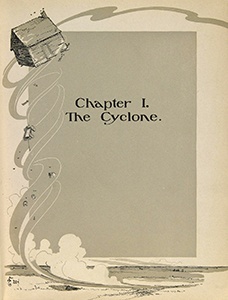
Gentle, Self-Deprecating Humor That Lands Well
I played with the thought in my mind, tapping my imaginary communicator pin and whispering "Computer. Tea. Earl Grey. Hot. And then an Essay." Nothing happened. Instead, I sat quietly in my room wrote the old-fashioned way. Days later I emerged from my room disheveled, but to my dismay, this college essay made me sound like just a guy who can't get over the fact that he'll never take the Starfleet Academy entrance exam. So, I tossed my essay away without even getting to disintegrate it with a phaser set on stun.
The author has his cake and eats it too here: both making fun of himself for being super into the Star Trek mythos, but also showing himself being committed enough to try whispering a command to the Enterprise computer alone in his room. You know, just in case.
A Solid Point That Is Made Paragraph by Paragraph
The meat of the essay is that the two versions of himself that the author thought about portraying each fails in some way to describe the real him. Neither an essay focusing on his off-beat interests, nor an essay devoted to his serious activism could capture everything about a well-rounded person in 600 words.

(Image: fir0002 via Wikimedia Commons .)
Where Essay #1 Needs Revision
Rewriting these flawed parts will make the essay shine.
Spending Way Too Long on the Metanarrative
I know that intro might have given the impression that this college essay will be about withstanding disasters, but the truth is that it isn't about that at all.
After 3 weeks of figuring myself out, I have converted myself into a piece of writing. As far as achievements go, this was definitely an amazing one. The ability to transform a human being into 603 words surely deserves a gold medal.
Look at how long and draggy these paragraphs are, especially after that zippy opening. Is it at all interesting to read about how someone else found the process of writing hard? Not really, because this is a very common experience.
In the rewrite, I'd advise condensing all of this to maybe a sentence to get to the meat of the actual essay .
Letting Other People Do All the Doing
I sat down with my mom to talk about colleges. "Maybe you should write about Star Trek ," she suggested, "you know how you've always been obsessed with Captain Picard, calling him your dream mentor. Unique hobbies make good topics, right? You'll sound creative!"
Almost out of nowhere, Robert Jameson Smith offered his words of advice. Perfect! He suggested students begin their college essay by listing their achievements and letting their essay materialize from there.
Twice in the essay, the author lets someone else tell him what to do. Not only that, but it sounds like both of the "incomplete" essays were dictated by the thoughts of other people and had little to do with his own ideas, experiences, or initiative.
In the rewrite, it would be better to recast both the Star Trek and the TREE versions of the essay as the author's own thoughts rather than someone else's suggestions . This way, the point of the essay—taking apart the idea that a college essay could summarize life experience—is earned by the author's two failed attempts to write that other kind of essay.

Leaving the Insight and Meaning Out of His Experiences
Both the Star Trek fandom and the TREE activism were obviously important life experiences for this author—important enough to be potential college essay topic candidates. But there is no description of what the author did with either one, nor any explanation of why these were so meaningful to his life.
It's fine to say that none of your achievements individually define you, but in order for that to work, you have to really sell the achievements themselves.
In the rewrite, it would be good to explore what he learned about himself and the world by pursuing these interests . How did they change him or seen him into the person he is today?
Not Adding New Shades and Facets of Himself Into the Mix
So, I tossed my essay away without even getting to disintegrate it with a phaser set on stun.
Yet in this essay, I was still being nagged by a voice that couldn't be ignored. Eventually, I submitted to that yelling inner voice and decided that this was not the right essay either.
In both of these passages, there is the perfect opportunity to point out what exactly these failed versions of the essay didn't capture about the author . In the next essay draft, I would suggest subtly making a point about his other qualities.
For example, after the Star Trek paragraph, he could talk about other culture he likes to consume, especially if he can discuss art forms he is interested in that would not be expected from someone who loves Star Trek .
Or, after the TREE paragraph, the author could explain why this second essay was no better at capturing him than the first. What was missing? Why is the self in the essay shouting—is it because this version paints him as an overly aggressive activist?

Essay #2: The "I Once Saw Poor People" Service Trip Essay
Unlike other teenagers, I'm not concerned about money, or partying, or what others think of me. Unlike other eighteen year-olds, I think about my future, and haven't become totally materialistic and acquisitive. My whole outlook on life changed after I realized that my life was just being handed to me on a silver spoon, and yet there were those in the world who didn't have enough food to eat or place to live. I realized that the one thing that this world needed more than anything was compassion; compassion for those less fortunate than us.
During the summer of 2006, I went on a community service trip to rural Peru to help build an elementary school for kids there. I expected harsh conditions, but what I encountered was far worse. It was one thing to watch commercials asking for donations to help the unfortunate people in less developed countries, yet it was a whole different story to actually live it. Even after all this time, I can still hear babies crying from hunger; I can still see the filthy rags that they wore; I can still smell the stench of misery and hopelessness. But my most vivid memory was the moment I first got to the farming town. The conditions of it hit me by surprise; it looked much worse in real life than compared to the what our group leader had told us. Poverty to me and everyone else I knew was a foreign concept that people hear about on the news or see in documentaries. But this abject poverty was their life, their reality. And for the brief ten days I was there, it would be mine too. As all of this realization came at once, I felt overwhelmed by the weight of what was to come. Would I be able to live in the same conditions as these people? Would I catch a disease that no longer existed in the first world, or maybe die from drinking contaminated water? As these questions rolled around my already dazed mind, I heard a soft voice asking me in Spanish, "Are you okay? Is there anything I can do to make you feel better?" I looked down to see a small boy, around nine years of age, who looked starved, and cold, wearing tattered clothing, comforting me. These people who have so little were able to forget their own needs, and put those much more fortunate ahead of themselves. It was at that moment that I saw how selfish I had been. How many people suffered like this in the world, while I went about life concerned about nothing at all?
Thinking back on the trip, maybe I made a difference, maybe not. But I gained something much more important. I gained the desire to make the world a better place for others. It was in a small, poverty-stricken village in Peru that I finally realized that there was more to life than just being alive.
What Essay #2 Does Well
Let's first point out what this draft has going for it.
Clear Chronology
This is an essay that tries to explain a shift in perspective. There are different ways to structure this overarching idea, but a chronological approach that starts with an earlier opinion, describes a mind changing event, and ends with the transformed point of view is an easy and clear way to lay this potentially complex subject out.
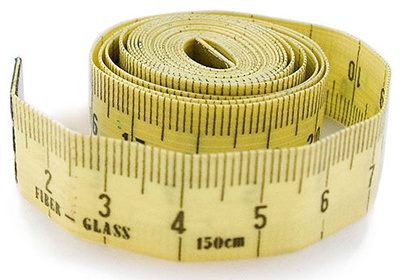
(Image: User:Lite via Wikimedia Commons)
Where Essay #2 Needs Revision
Now let's see what needs to be changed in order for this essay to pass muster.
Condescending, Obnoxious Tone
Unlike other teenagers, I'm not concerned about money, or partying, or what others think of me. Unlike other eighteen year-olds, I think about my future, and haven't become totally materialistic and acquisitive.
This is a very broad generalization, which doesn't tend to be the best way to formulate an argument—or to start an essay. It just makes this author sound dismissive of a huge swath of the population.
In the rewrite, this author would be way better off just concentrate on what she want to say about herself, not pass judgment on "other teenagers," most of whom she doesn't know and will never meet.
I realized that the one thing that this world needed more than anything was compassion; compassion for those less fortunate than us.
Coming from someone who hasn't earned her place in the world through anything but the luck of being born, the word "compassion" sounds really condescending. Calling others "less fortunate" when you're a senior in high school has a dehumanizing quality to it.
These people who have so little were able to forget their own needs, and put those much more fortunate in front of themselves.
Again, this comes across as very patronizing. Not only that, but to this little boy the author was clearly not looking all that "fortunate"—instead, she looked pathetic enough to need comforting.
In the next draft, a better hook could be making the essay about the many different kinds of shifting perspectives the author encountered on that trip . A more meaningful essay would compare and contrast the points of view of the TV commercials, to what the group leader said, to the author's own expectations, and finally to this child's point of view.

Vague, Unobservant Description
During the summer of 2006, I went on a community service trip to rural Peru to help build an elementary school for kids there. I expected harsh conditions, but what I encountered was far worse. It was one thing to watch commercials asking for donations to help the unfortunate people in less developed countries, yet it was a whole different story to actually live it. Even after all this time, I can still hear babies crying from hunger; I can still see the filthy rags that they wore; I can still smell the stench of misery and hopelessness.
Phrases like "cries of the small children from not having enough to eat" and "dirt stained rags" seem like descriptions, but they're really closer to incurious and completely hackneyed generalizations. Why were the kids were crying? How many kids? All the kids? One specific really loud kid?
The same goes for "filthy rags," which is both an incredibly insensitive way to talk about the clothing of these villagers, and again shows a total lack of interest in their life. Why were their clothes dirty? Were they workers or farmers so their clothes showing marks of labor? Did they have Sunday clothes? Traditional clothes they would put on for special occasions? Did they make their own clothes? That would be a good reason to keep wearing clothing even if it had "stains" on it.
The rewrite should either make this section more specific and less reliant on cliches, or should discard it altogether .
The conditions of it hit me by surprise; it looked much worse in real life than compared to the what our group leader had told us. Poverty to me and everyone else I knew was a foreign concept that people hear about on the news or see in documentaries. But this abject poverty was their life, their reality.
If this is the "most vivid memory," then I would expect to read all the details that have been seared into the author's brain. What did their leader tell them? What was different in real life? What was the light like? What did the houses/roads/grass/fields/trees/animals/cars look like? What time of day was it? Did they get there by bus, train, or plane? Was there an airport/train station/bus terminal? A city center? Shops? A marketplace?
There are any number of details to include here when doing another drafting pass.

Lack of Insight or Maturity
But this abject poverty was their life, their reality. And for the brief ten days I was there, it would be mine too. As all of this realization came at once, I felt overwhelmed by the weight of what was to come. Would I be able to live in the same conditions as these people? Would I catch a disease that no longer existed in the first world, or maybe die from drinking contaminated water?
Without a framing device explaining that this initial panic was an overreaction, this section just makes the author sound whiny, entitled, melodramatic, and immature . After all, this isn't a a solo wilderness trek—the author is there with a paid guided program. Just how much mortality is typically associated with these very standard college-application-boosting service trips?
In a rewrite, I would suggest including more perspective on the author's outsized and overprivileged response here. This would fit well with a new focus on the different points of view on this village the author encountered.
Unearned, Clichéd "Deep Thoughts"
But I gained something much more important. I gained the desire to make the world a better place for others. It was in a small, poverty-stricken village in Peru that I finally realized that there was more to life than just being alive.
Is it really believable that this is what the author learned? There is maybe some evidence to suggest that the author was shaken somewhat out of a comfortable, materialistic existence. But what does "there is more to life than just being alive" even really mean? This conclusion is rather vague, and seems mostly a non sequitur.
In a rewrite, the essay should be completely reoriented to discuss how differently others see us than we see ourselves, pivoting on the experience of being pitied by someone who you thought was pitiable. Then, the new version can end by on a note of being better able to understand different points of view and other people's perspectives .

The Bottom Line
- Bad college essays have problems either with their topics or their execution.
- The essay is how admissions officers learn about your personality, point of view, and maturity level, so getting the topic right is a key factor in letting them see you as an aware, self-directed, open-minded applicant who is going to thrive in an environment of independence.
- The essay is also how admissions officers learn that you are writing at a ready-for-college level, so screwing up the execution shows that you either don't know how to write, or don't care enough to do it well.
- The main ways college essay topics go wrong is bad taste, bad judgment, and lack of self-awareness.
- The main ways college essays fail in their execution have to do with ignoring format, syntax, and genre expectations.
What's Next?
Want to read some excellent college essays now that you've seen some examples of flawed one? Take a look through our roundup of college essay examples published by colleges and then get help with brainstorming your perfect college essay topic .
Need some guidance on other parts of the application process? Check out our detailed, step-by-step guide to college applications for advice.
Are you considering taking the SAT or ACT again before you submit your application? Read about our famous test prep guides for hints and strategies for a better score.

Trending Now
How to Get Into Harvard and the Ivy League
How to Get a Perfect 4.0 GPA
How to Write an Amazing College Essay
What Exactly Are Colleges Looking For?
ACT vs. SAT: Which Test Should You Take?
When should you take the SAT or ACT?
Get Your Free

Find Your Target SAT Score
Free Complete Official SAT Practice Tests
How to Get a Perfect SAT Score, by an Expert Full Scorer
Score 800 on SAT Math
Score 800 on SAT Reading and Writing
How to Improve Your Low SAT Score
Score 600 on SAT Math
Score 600 on SAT Reading and Writing
Find Your Target ACT Score
Complete Official Free ACT Practice Tests
How to Get a Perfect ACT Score, by a 36 Full Scorer
Get a 36 on ACT English
Get a 36 on ACT Math
Get a 36 on ACT Reading
Get a 36 on ACT Science
How to Improve Your Low ACT Score
Get a 24 on ACT English
Get a 24 on ACT Math
Get a 24 on ACT Reading
Get a 24 on ACT Science
Stay Informed
Get the latest articles and test prep tips!

Anna scored in the 99th percentile on her SATs in high school, and went on to major in English at Princeton and to get her doctorate in English Literature at Columbia. She is passionate about improving student access to higher education.
Ask a Question Below
Have any questions about this article or other topics? Ask below and we'll reply!
Essay Writing: Common Grammatical and Mechanical Errors
- Essay Writing Basics
- Purdue OWL Page on Writing Your Thesis This link opens in a new window
- Paragraphs and Transitions
- How to Tell if a Website is Legitimate This link opens in a new window
- Formatting Your References Page
- Cite a Website
- Common Grammatical and Mechanical Errors
- Additional Resources
- Proofread Before You Submit Your Paper
- Structuring the 5-Paragraph Essay
Another Source
Purdue Online Writing Lab (OWL) has a list of common writing errors.
Purdue is also a great resource for citation & formatting rules.
Purdue OWL: Proofreading
Common Mistakes: Presented by the University of Minnesota
Content by the University of Minnesota's Twelve Common Errors: An Editing Checklist
Twelve Common Errors: An Editing Checklist
This list includes brief examples and explanations for you to use as reminders while you are editing your papers. If you would like to learn more, take a short writing course, set up an individual appointment at Student Writing Support, or consult a handbook for complete explanations.
1. Sentence Fragments
Make sure each word group you have punctuated as a sentence contains a grammatically complete and independent thought that can stand alone as an acceptable sentence.
Incorrect (the second sentence is the fragment): Tests of the Shroud of Turin have produced some curious findings. For example. the pollen of forty-eight plants native to Europe and the Middle East.
Revised: Tests of the Shroud of Turin have produced some curious findings. For example, the cloth contains the pollen of forty-eight plants native to Europe and the Middle East.
Incorrect: Scientists report no human deaths due to excessive caffeine consumption. Although caffeine does cause death in certain animals.
Revised: Scientists report no human deaths due to excessive caffeine consumption, although caffeine does cause death in certain animals.
2. Sentence Sprawl
Too many equally weighted phrases and clauses produce tiresome sentences.
Incorrect (There are no grammatical errors here, but the sprawling sentence does not communicate clearly and concisely.): The hearing was planned for Mon., Dec. 2, but not all of the witnesses could be available, so it was rescheduled for the following Friday, and then all the witnesses could attend.
Revised: The hearing, which had been planned for Mon., Dec. 2, was rescheduled for the following Friday so that all witnesses would be able to attend.
3. Misplaced and Dangling Modifiers
Place modifiers near the words they describe; be sure the modified words actually appear in the sentence.
Incorrect: When writing a proposal, an original task is set for research.
Revised: When writing a proposal, a scholar sets an original task for research.
Incorrect: Many tourists visit Arlington National Cemetery, where veterans and military personnel are buried every day from 9:00 a.m. until 5:00 p.m.
Revised: Every day from 9:00 a.m. until 5:00 p.m., many tourists visit Arlington National Cemetery, where veterans and military personnel are buried.
4. Faulty Parallelism
Be sure you use grammatically equal sentence elements to express two or more matching ideas or items in a series.
Incorrect: The candidate's goals include winning the election, a national health program, and the educational system.
Revised: The candidate's goals include winning the election, enacting a national health program, and improving the educational system.
5. Unclear Pronoun Reference
All pronouns must clearly refer to definite referents (nouns). Use "it," "this," "that," "these," "those," and "which" carefully to prevent confusion.
Incorrect: Einstein was a brilliant mathematician. This is how he was able to explain the universe.
Revised: Einstein, who was a brilliant mathematician, used his ability with numbers to explain the universe.
Incorrect: Because Senator Martin is less interested in the environment than in economic development, he sometimes neglects it.
Revised: Because of his interest in economic development, Senator Martin sometimes neglects the environment.
6. Incorrect Pronoun Case
Determine whether the pronoun is being used as a subject, an object, or a possessive in the sentence, and select the pronoun form to match.
Incorrect: Castro's communist principles inevitably led to an ideological conflict between he and President Kennedy.
Revised: Castro's communist principles inevitably led to an ideological conflict between him and President Kennedy.
Incorrect: Since strict constructionists recommend fidelity to the Constitution as written, no one objects more than them to judicial reinterpretation.
Revised: Since strict constructionists recommend fidelity to the Constitution as written, no one objects more than they [object] to judicial reinterpretation.
7. Omitted Commas
Use commas to signal nonrestrictive or nonessential material, to prevent confusion, and to indicate relationships among ideas and sentence parts.
Incorrect: When it comes to eating people differ in their tastes.-- (eww!)
Revised: When it comes to eating , people differ in their tastes.
Incorrect: The Huns who were Mongolian invaded Gaul in 451.
Revised: The Huns, who were Mongolian, invaded Gaul in 451.
8. Superfluous Commas
Unnecessary commas make sentences difficult to read.
Incorrect: Field trips are required, in several courses, such as, botany and geology.
Revised: Field trips are required in several courses, such as botany and geology.
Incorrect: The term "scientific illiteracy," has become almost a cliché in educational circles.
Revised: The term "scientific illiteracy" has become almost a cliché in educational circles.
9. Comma Splices
Do not link two independent clauses with a comma (unless you also use a coordinating conjunction: "and," "or," "but,"' "nor," "so," "yet"). Instead, use a period or semicolon, or rewrite the sentence.
Incorrect: In 1952, Japan's GNP was one third that of France, by the late 1970s, it was larger than the GNPs of France and Britain combined.
Revised: In 1952, Japan's GNP was one third that of France. By the late 1970s, it was larger than the GNPs of France and Britain combined.
Incorrect: Diseased coronary arteries are often surgically bypassed, however half of all bypass grafts fail within ten years.
Revised: Diseased coronary arteries are often surgically bypassed; however, half of all bypass grafts fail within ten years.
10. Apostrophe Errors
Apostrophes indicate possession for nouns ("Jim's hat," "several years' work") but not for personal pronouns ( "its," "your," "their," and "whose"). Apostrophes also indicate omissions in contractions ("it's" = "it is"). In general they are not used to indicate plurals.
Incorrect: In the current conflict its uncertain who's borders their contesting.
Revised: In the current conflict, it is [it's] uncertain whose borders they are [they're] contesting.
Incorrect: The Aztecs' ritual's of renewal increased in frequency over the course of time.
Revised: The Aztecs' rituals of renewal increased in frequency over the course of time.
11. Words Easily Confused
"Effect" is most often a noun (the effect), and "affect" is almost always a verb. Other pairs commonly confused: "lead"/ "led" and "accept"/ "except." Check a glossary of usage to find the right choice.
Incorrect: The recession had a negative affect on sales.
Revised: The recession had a negative effect on sales. (or) The recession affected sales negatively.
Incorrect: The laboratory instructor choose not to offer detailed advise.
Revised: The laboratory instructor chose not to offer detailed advice.
12. Misspellings
Spelling errors are usually perceived as a reflection of the writer's careless attitude toward the whole project. Do not allow your hard work to be marred in this way! In addition to comprehensive dictionaries, you may want to use electronic spell-checkers, spelling dictionaries, and lists of frequently misspelled words found in handbooks.
All Content by the University of Minnesota's Twelve Common Errors: An Editing Checklist
THIS RESEARCH OR "LIBGUIDE" WAS PRODUCED BY THE LIBRARIANS OF MONROE UNIVERSITY
- << Previous: Cite a Website
- Next: Plagiarism >>
- Last Updated: Nov 20, 2024 4:08 PM
- URL: https://monroeuniversity.libguides.com/essaywriting
- Library (Book) Catalog |
- Research Guides |
- Library Databases |
Talk to our experts
1800-120-456-456
- Poverty Essay for Students in English

Essay on Poverty
Poverty is a disease that has no cure. The deeper this disease is, the deeper its wound. By the way, man lives under compulsion. But usually one wants to avoid it. Poverty is a condition of extreme poverty for any person or human being. This is a situation when a person starts to lack important things in his life such as the roof, necessary food, clothes, medicines, etc. to continue his life.
The causes of poverty are excessive population, fatal and contagious diseases, natural disasters, low agricultural yields, unemployment, casteism, illiteracy, gender inequality, environmental problems, changing trends in the economy of the country, untouchability, little or limited access to people's rights, Problems such as political violence, sponsored crime, corruption, lack of encouragement, inaction, ancient social beliefs, etc. have to be faced.
Poverty has become a big problem of the world, efforts are being made across the world today to remove poverty, but the problem is that it does not take the name of ending. This problem affects a human's economic and daily life. Poverty teaches man to live like a slave in which he has to change the place over time, in this situation due to the lack of education of the poor, his nature and speech also make a difference. Living in a world of poor people has become a curse. Getting enough money to get food is like getting relief from a curse for the poor, that's why they do not have access to education.
Reasons of Poverty
There are many reasons that have continued with carrying it for a long time. Because of this, freedom, mental and physical fitness, and lack of security in a person remains. It is very important that in order to live a normal life, the country and the whole world will have to work together to bring proper physical and mental health, complete education, a home for everyone, and other important things.
In today's time, there is the problem of poverty which gives all the pain, pain, and despair to the poor. Due to the lack of money from poverty, I show the lack of many things. Poverty makes children spend life in compulsion. If forced to make bread, sometimes in bringing children's books. At that time he is also unable to raise children.
We can tell poverty in many ways like it has become a common thing in India. Most of the people here are unable to get the things they need. Here a vast section of the population is illiterate, hungry, and forced to live without clothes and a home. About half of India's population suffers from this epidemic of poverty.
A poor person lives his life without possession of basic things like food for two times, clean water, house, clothes, proper education, etc. There are many reasons for poverty in India. Incorrect distribution of national income is also a reason. People in the low-income group are much poorer than those in the high-income group. Children of poor families never get proper education, nutrition, and a happy childhood environment. The main cause of poverty is illiteracy, corruption, growing population, weak agriculture, the growing gap between rich and poverty, etc.
Measures to Control Poverty
Corruption has to be erased.
Unemployed will have to give proper employment
A growing population will have to be stopped
Farmers have to be given proper facilities for farming
Education should be provided to children for proper education
Poverty is not just a human problem but it is a national problem. It should be solved by implementing some effective methods on a quick basis. Every person should be united by ending corruption. A problem has been created in which he does not get even the basics. That is why at present, many measures are being taken to prevent poverty so that the standard of living of people around the world can be improved.
Short Essays on Poverty
Poverty is akin to being a slave, as a person cannot achieve anything he desires. It has various faces that alter depending on who you are, where you are, and when. It can be defined in various ways depending on how a person feels or experiences it.
Poverty is a state that no one wants to be in, but it must be removed owing to cultural norms, natural disasters, or a lack of adequate education. The individual who is experiencing it frequently wishes to flee. Poverty is a call for poor people to earn enough money to eat, have access to education, have adequate shelter, dress appropriately, and take steps to protect themselves from social and political violence.
It's a problem that goes unnoticed yet significantly impacts a person's social life. Poverty is an entirely avoidable problem, but there are various reasons why it has persisted in the past.
Poverty robs people of their freedom, mental health, physical well-being, and security. Everyone must strive to eradicate poverty from the country and the world, ensuring appropriate physical and mental health, full literacy, a home for all, and other necessities for living a simple life.
When a person cannot do anything according to his will, he is said to be in poverty. Many different faces alter depending on who you are, where you are, and time. It can be characterized in a variety of ways, depending on how the person feels or what they have achieved. Poverty is a circumstance that no one wants to be in, even if it is forced upon them due to a lack of experience, nature, natural disasters, or a lack of suitable education. Humans have won it, but they prefer to stay away from it. Poverty is a call for needed clothing and protection against social and political violence for the poor to earn enough money to buy food, receive an education, and find a suitable place to live.
This is an unseen problem that harms a person's social life. Even though numerous factors have contributed to its long-term persistence, poverty is a perfectly preventable problem. As a result, a person's freedom, mental and physical well-being, and sense of security are all compromised. It is critical to bring poverty and poverty from worldwide to work together to live everyday life, provide adequate physical and mental health, complete education, a home for everyone, and other essential things.
FAQs on Poverty Essay for Students in English
1. What are the Effects of Poverty?
When people are not able to afford their basic necessities. For example medications and hospital fees are impossible to afford for that means they choose crook ways of obtaining money i.e. stealing, robbery, etc.
2. What are the Possible Ways to Remove Poverty?
Since India is a developing country, eliminating poverty here is much tougher than in other countries but still some measures can be taken and government assistance would be much helpful in this step which requires some relevant planning and policies for those who fall under the poverty line. Another major factor of poverty is illiteracy and unemployment. Therefore education is the most efficient tool to confine the poverty line in the country.
3. What is the Poverty Line?
The Below Poverty Line (BPL) signifies the state of people who fall under poverty status. It also symbolizes an economic drawback. In addition, it is used for people who are in need of help and assistance from the government.
4. What are the causes of poverty?
Poverty has several causes, including a lack of access to essentials such as water, food, shelter, education, and healthcare. Poverty is also caused by inequities such as gender or ethnic discrimination, bad governance, conflict, exploitation, and domestic violence. These disparities not only cause a person or a society to fall into poverty, but they can also prevent people from receiving social assistance that could help them get out of it. Due to political upheaval, past or present conflict, corrupt authorities, and lousy infrastructure that restricts access to education, clean water, healthcare, and other essentials, children and communities in fragile states confront greater poverty rates.
5. What can we do to put an end to extreme poverty?
We can aid in the eradication of extreme poverty by determining what causes it in a particular community and then determining what needs to change. Because poverty manifests itself differently in different regions and is caused by different circumstances, the work to end extreme poverty differs depending on the situation. More economic resources are needed to assist people in increasing their income and better providing for themselves and their families. To ensure that poverty does not return, the work must be sustainable, regardless of the solution. As a result, the community must be involved at every stage.
6. What criteria are used to assess poverty?
Each country's government determines poverty levels by conducting home surveys of its citizens. The World Bank, for example, assists and may conduct their surveys, although data collecting is time-consuming and slow. New high-frequency surveys are being created and tested, leveraging estimations and mobile phone technologies. If you want to learn more about these topics, download the Vedantu App that has been specifically designed and curated for students by experts.
7. What is the poverty cycle?
Poverty can be a catch-22 situation. To escape poverty, a person requires access to possibilities such as education, clean water, local medical services, and financial means. Poverty creates a generational cycle if these critical factors are not there. If parents cannot afford to take their children to school, they will struggle to find work when they grow up. Even natural disasters and conflicts can exacerbate the poverty cycle by bringing more people.
8. What are the United Nations' Sustainable Development Goals (SDGs)?
The Sustainable Development Goals (SDGs) are a set of goals for countries worldwide to work together in a global partnership for the benefit of people, the environment, and prosperity. The Sustainable Development Goals aim to abolish extreme poverty for all people everywhere by 2030 and to reduce the proportion of people living in poverty in all forms by at least half. In September 2015, the United Nations member states accepted this objective as one of 17 to end extreme poverty.


IMAGES
VIDEO
COMMENTS
Bad writing is something every writer wants to avoid. However, understanding what constitutes poor writing can be a useful tool in improving writing quality. To shed light on this, we’ll explore some examples of bad writing, commonly seen in popular books, both in literary fiction and commercial fiction. Inappropriate Dialogue and Dialogue Tags
“Poverty is the worst form of violence”. – Mahatma Gandhi. We can define poverty as the condition where the basic needs of a family, like food, shelter, clothing, and education are not fulfilled. It can lead to other problems like poor literacy, unemployment, malnutrition, etc.
Once you get beyond the really obvious things, like spelling mistakes and grammatical errors, what exactly does “bad” writing look like? More importantly, how do you fix it? That’s what we’re going to tackle here. Is There Even Such a Thing As “Good” Writing?
Read on to find out what makes an essay bad and to learn which college essay topics to avoid. I'll also explain how to recognize bad college essays—and what to do to if you end up creating one by accident. What exactly happens to turn a college essay terrible?
Make sure each word group you have punctuated as a sentence contains a grammatically complete and independent thought that can stand alone as an acceptable sentence. Incorrect (the second sentence is the fragment): Tests of the Shroud of Turin have produced some curious findings.
Learn about Poverty Essay Topic of English in detail explained by subject experts on vedantu.com. Register free for online tutoring session to clear your doubts.